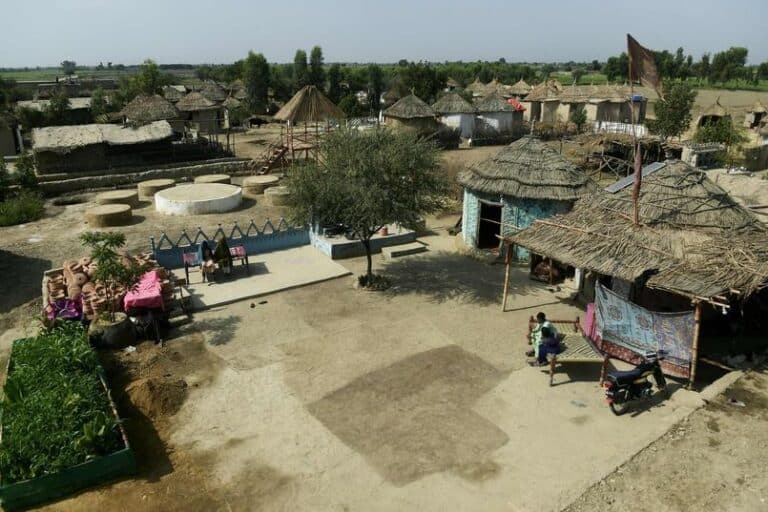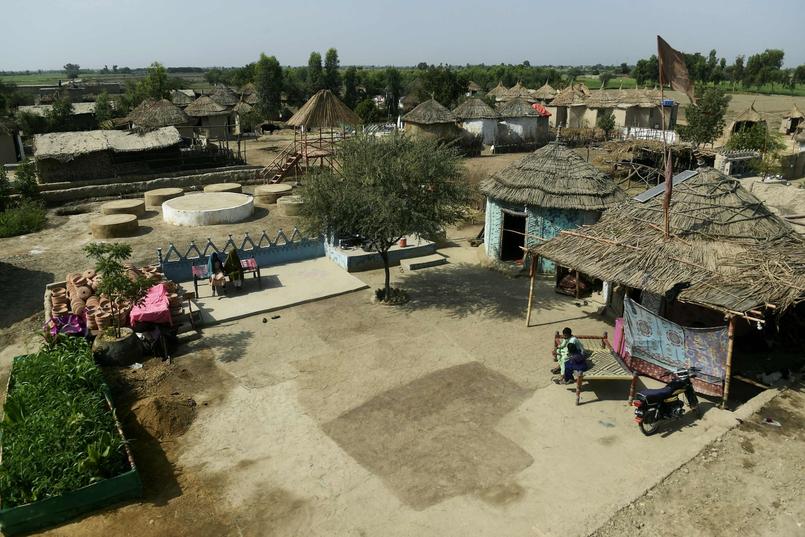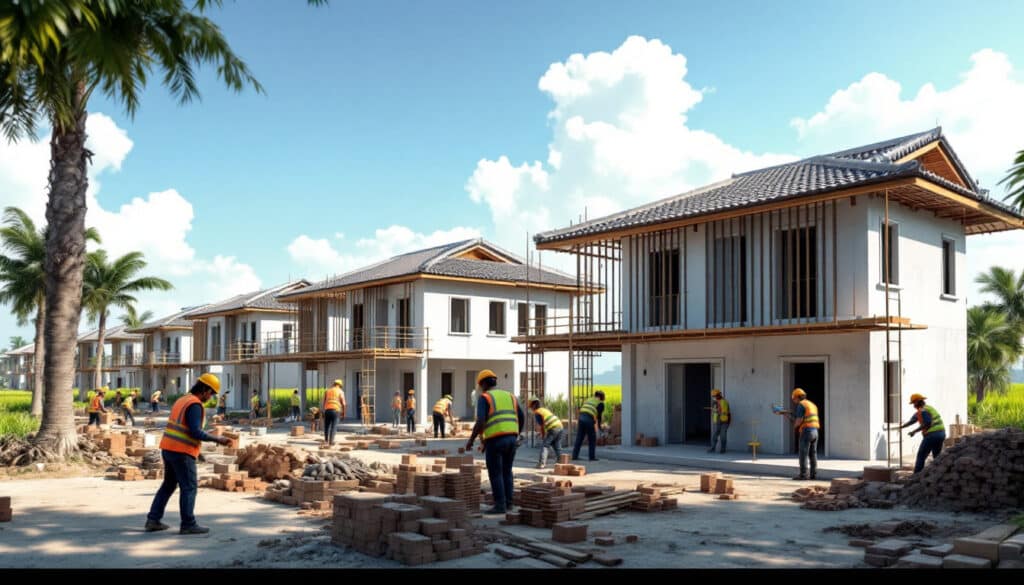Cookies play a crucial role in maintaining our Google services. They allow us to track disruptions and protect against spam and fraud. Furthermore, they measure our audience’s engagement and the site’s statistics.
We use the data to develop and improve new services. Accepting all options allows us to deliver personalized ads and content. By choosing to reject all cookies, these additional features will not be utilized. You can manage your privacy settings at any time through our dedicated tool.

Table of Contents
ToggleLam Thanh Si evaluates the progress of housing projects in three localities
In the current context of housing crisis, initiatives aimed at improving the supply and quality of housing are essential. Lam Thanh Si, secretary of the Tri Ton District Party, has recently looked into the progress of housing projects in three key localities. His evaluation offers a clear view of the challenges and successes encountered on the ground.
What progress has been made in Longueuil in the construction of social housing?
Longueuil has reported a record year in the construction of social housing, according to the latest reports from Lam Thanh Si. This positive dynamic is explained by close collaboration between municipal authorities and real estate developers. Indeed, the municipality has implemented tax incentives and grants to encourage the construction of new affordable housing.
Moreover, the project Longueuil records a record year in the construction of social housing highlights the importance of local initiatives in the fight against housing shortages. These efforts have led to the creation of more than 500 new residential units, thus meeting the growing needs of the population.
Lam Thanh Si also emphasizes the importance of the quality of constructions. “We do not settle for building quickly; we ensure that each housing unit meets high standards of durability and comfort,” he asserts. This approach guarantees not only the satisfaction of residents but also the sustainability of projects in the long term.
How are prefabricated houses innovating to solve the housing crisis in Spain?
From an international perspective, construction methods are evolving rapidly. Prefabricated houses represent a promising solution to combat the housing crisis, particularly in Spain. Lam Thanh Si highlighted this model during his recent evaluation, emphasizing its many advantages in terms of cost and speed of construction.
According to the article Prefabricated houses: a promising solution to tackle the housing crisis in Spain, this type of construction allows for reduced manufacturing times while maintaining controlled costs. Furthermore, prefabricated houses offer design flexibility, thus adapting to the specific needs of local populations.
Lam Thanh Si insists on the necessity of adopting innovative technologies to effectively address current challenges. “Prefabricated houses are not only an economical alternative; they also represent a significant advancement in sustainability and energy efficiency,” he explains. This perspective encourages the adoption of modern construction methods in other regions facing similar issues.
What innovations do elevated houses bring to the housing crisis?
In the face of growing urbanization and city densification, elevated houses present an innovative response to the housing crisis. Lam Thanh Si particularly appreciates the efforts made in this direction, highlighting the advantages of this type of construction.
The project Elevated houses and better optimized space: innovative responses to the housing crisis perfectly illustrates this trend. By elevating the dwellings, it is possible to free up ground space, thus allowing for more efficient use of available land. This is particularly relevant in urban areas where space is limited and expensive.
Moreover, elevated houses offer advantages in terms of safety and resilience to climate hazards. “By elevating the dwellings, we protect residents against flooding and other environmental risks,” asserts Lam Thanh Si. This proactive approach contributes to creating safer and more sustainable communities.
What challenges does the construction of individual houses face according to Hexacom?
While some market niches for housing show signs of dynamism, others, particularly individual house construction, face significant challenges. Loïc Vandromme from Hexacom recently announced a 29% decline in his revenue for 2024, reflecting a worrying trend in this sector.
In the article The construction of individual houses in crisis: Loïc Vandromme from Hexacom announces a 29% decline in his revenue for 2024, several factors are identified as responsible for this situation. The rising costs of materials, the shortage of skilled labor, and strict regulations are cited as major obstacles to market growth.
Lam Thanh Si emphasizes the importance of diversifying approaches in the construction sector. “It is crucial to explore alternatives and encourage innovation to overcome these challenges,” he states. He particularly suggests strengthening vocational training and supporting research and development of new construction technologies.
What is the housing minister’s initiative regarding the zero-interest loan?
As part of her efforts to make housing more accessible, the housing minister recently proposed a zero-interest loan. This initiative aims to facilitate access to homeownership for a larger number of citizens, particularly those from modest backgrounds.
The article The housing minister proposes a zero-interest loan accessible to all: an analysis of this initiative details the main aspects of this scheme. The zero-interest loan allows borrowers to finance part of their property acquisition without having to pay interest, thus reducing the overall cost of the purchase.
Lam Thanh Si is optimistic about the impact of this measure on the housing market. “This initiative is an important step towards greater social and economic inclusion. It will allow many families to access decent living conditions without incurring excessive debt,” he explains. He also encourages financial institutions to fully engage in this effort to maximize its benefits.
Evaluations from Lam Thanh Si highlight the various efforts and initiatives undertaken to improve the housing situation in different localities. Whether it concerns social housing projects in Longueuil, the innovation of prefabricated houses in Spain, or the challenges faced by individual house construction, each aspect offers valuable lessons. The proposal for a zero-interest loan by the housing minister also represents a significant advancement towards more equitable access to housing. Following these developments, it is clear that the housing sector continues to evolve dynamically, adapting to the changing needs of society.
















